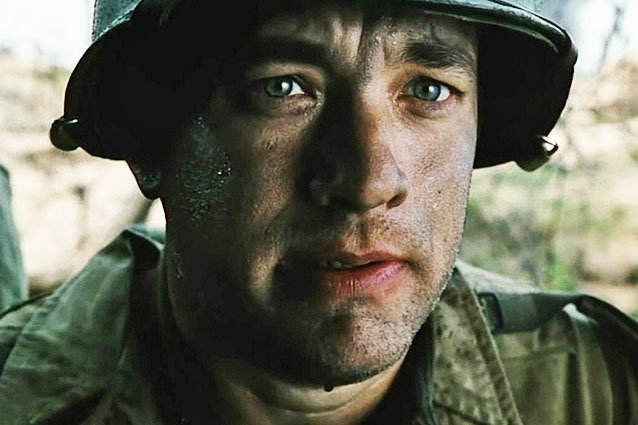 Paramount
Paramount
Tom Hanks, possibly the most well-liked actor in Hollywood, has spent much of his career acting in period pieces that deal with important or pivotal moments in history, and his latest film, Captain Phillips, is no exception. In it, Hanks plays Richard Phillips, whose freighter is hijacked by Somalian pirates, and after that, he will play Walt Disney in Saving Mr. Banks.
With Captain Phillips in theaters this week and another historical film on his plate, we got to thinking about all of the eras of history that Hanks has appeared in and the ways he has presented these important historical events in order to get the most powerful reaction from audiences.
The Da Vinci Code – Biblical
You know the story of Jesus Christ, right? Well, think again, because Hanks is here to present a slightly different version of events. While the film itself takes place in modern day Europe, the plot of The Da Vinci Code has to do with a conspiracy theory that the church has hidden Jesus’ marriage to Mary Magdalene. Both the movie and the novel it’s based on caused a great deal of controversy, and it’s a testament to Hanks’ likability that he was able to make a film contradicting what everyone believes to be true about Jesus and make it out unscathed.
The Green Mile – 1930s
As corrections officer Paul Edgecomb in 1930s Louisiana, Hanks befriends John Coffey, a kind, gentle man on death row, played by Michael Clarke Duncan. If you haven’t started crying simply from reading that description, you are obviously less susceptible to Hanks’ charms than the rest of us. While many films have been made about similar subjects, both Hanks and Duncan give performances that turn a tragic friendship into a devastating movie-going experience, by using the film to showcase the issues of race relations in the pre-Civil War South.
Saving Private Ryan – World War II
How do you make a film about World War II, already and incredibly emotional subject, even more powerful? By having Tom Hanks lead a company of soldiers tasked with finding and rescuing a paratrooper who has gone missing in action. And if that’s not enough to get you, they are forced to go on this mission immediately after fighting on Omaha Beach on D-Day. Becuase when Hanks makes a film about one of the most devastating periods in history, he makes sure that there won’t be a dry eye in the theater.
Apollo 13 – Space Race
Surely, you must be thinking, there’s no way to make audiences cry over the Space Race? Well, Hanks managed to find one. In Apollo 13, Hanks and his crew are trapped in a space shuttle when their mission goes wrong, and they must try and make it hope safely. Not only does Hanks manage to make being an astronaut seem like both the most awesome and the most dangerous profession of all time, but the focus on the people these astronauts have left back on the ground adds to the film’s tension and emotional center.
Forrest Gump – Vietnam War
Forrest Gump might be Hanks’ most famous film, but it’s also the epitome of his adventures through history. Over the course of the film, Forrest meets John F. Kennedy, inspires John Lennon to write “Imagine” and reports the Watergate break-in. However, it’s the film’s treatment of the Vietnam War that is the most affecting. Having to watch Forrest, one of the kindest, most well-intentioned people in movies witness the death of one of his best friends and the emotional breakdown of the other is almost powerful enough to make viewers want to join an anti-war rally themselves.
Extremely Loud and Incredibly Close – September 11th
It’s not difficult for Americans to conjure up strong emotions about the terrorist attacks on September 11, 2001, so it’s almost fitting that Hanks only briefly appears in the film, which focuses instead on the character’s son, Oskar. That’s right: Hanks has gotten so adept at making audiences cry that he doesn’t even have to be present to do so.
Captain Phillips – 2009 Somali Pirate Attacks
Hanks’ most recent film is set to be a powerful, emotional thrill ride. But Hanks isn’t just content with showing the harrowing and courageous experiences of Capt. Richard Phillips, as the film also works to show the Somali pirates as human beings rather than just cartoon villains, and he’s so good at playing with audience’s emotions that he can help to make the antagonists of the piece sympathetic. However, this film also got us thinking: if Hanks is mining the recent past for historical events to make movies out of, how much longer will it be before he starts making us cry over events from the future? Or has it started already?


